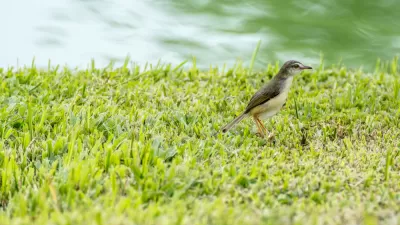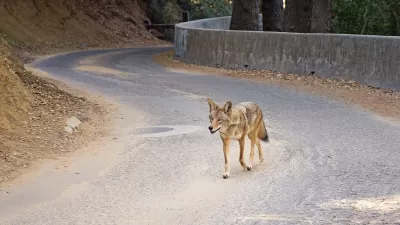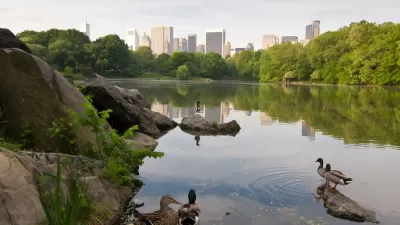Welcome to a post-human era of biological evolution. Strap on your seat belts.

Menno Schilthuizen writes a story of the incredible intersection between built and natural, as seen in the quickening pace of evolution among species living in urban settings.
"For a long time, biologists thought evolution was a very, very slow process, too tardy to be observed in a human lifetime," explains Schilthuizen. "But recently, we have come to understand that evolution can happen very quickly, as long as natural selection — the relative benefit that a particular characteristic bestows on its bearer — is strong."
The city, in its many manifestations, serves as the perfect testing ground, according to Schilthuizen. Now evolutionary biologists are focusing their work in cities, not faraway jungles and other extreme natural environments.
On a final, significant theme, there could be unpredictable evolutionary consequences as cities expand around the world. According to Schilthuizen, "as cities continue to grow, they will exchange more goods, people and information over greater distances. So each change in the environment (a particular pollutant, a certain novelty in road construction, a new kind of food source) will spread quickly across the world, and urban wildlife everywhere will be faced with the same novel challenge. Those that evolve adaptations will also easily spread to other cities, leading to a truly globalized urban flora and fauna — continually evolving at breakneck speed to keep up with an increasingly human-dominated world."
FULL STORY: Evolution Is Happening Faster Than We Thought

Alabama: Trump Terminates Settlements for Black Communities Harmed By Raw Sewage
Trump deemed the landmark civil rights agreement “illegal DEI and environmental justice policy.”

Study: Maui’s Plan to Convert Vacation Rentals to Long-Term Housing Could Cause Nearly $1 Billion Economic Loss
The plan would reduce visitor accommodation by 25% resulting in 1,900 jobs lost.

Planetizen Federal Action Tracker
A weekly monitor of how Trump’s orders and actions are impacting planners and planning in America.

Waymo Gets Permission to Map SF’s Market Street
If allowed to operate on the traffic-restricted street, Waymo’s autonomous taxis would have a leg up over ride-hailing competitors — and counter the city’s efforts to grow bike and pedestrian on the thoroughfare.

Parklet Symposium Highlights the Success of Shared Spaces
Parklets got a boost during the Covid-19 pandemic, when the concept was translated to outdoor dining programs that offered restaurants a lifeline during the shutdown.

Federal Homelessness Agency Places Entire Staff on Leave
The U.S. Interagency Council on Homelessness is the only federal agency dedicated to preventing and ending homelessness.
Urban Design for Planners 1: Software Tools
This six-course series explores essential urban design concepts using open source software and equips planners with the tools they need to participate fully in the urban design process.
Planning for Universal Design
Learn the tools for implementing Universal Design in planning regulations.
Caltrans
Smith Gee Studio
Institute for Housing and Urban Development Studies (IHS)
City of Grandview
Harvard GSD Executive Education
Toledo-Lucas County Plan Commissions
Salt Lake City
NYU Wagner Graduate School of Public Service





























